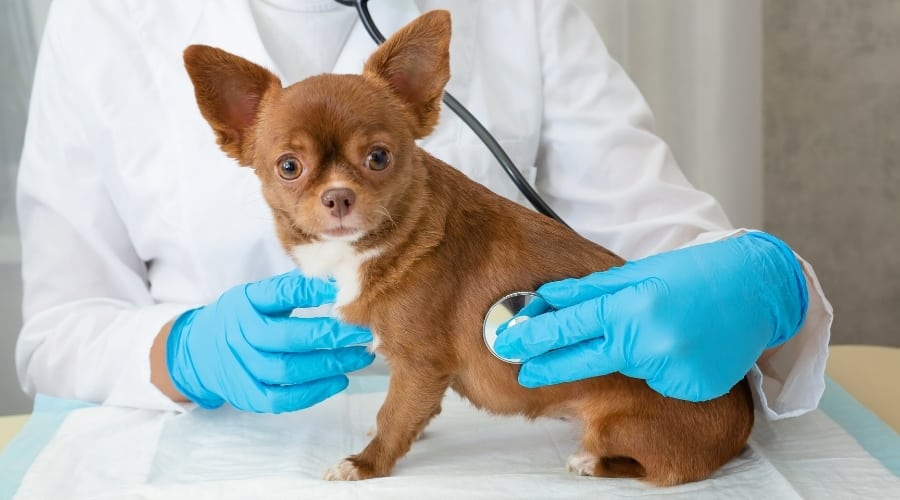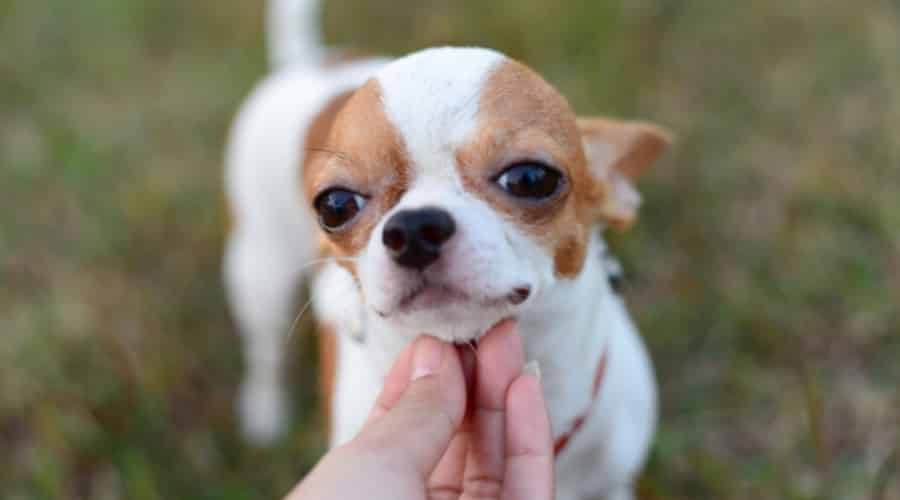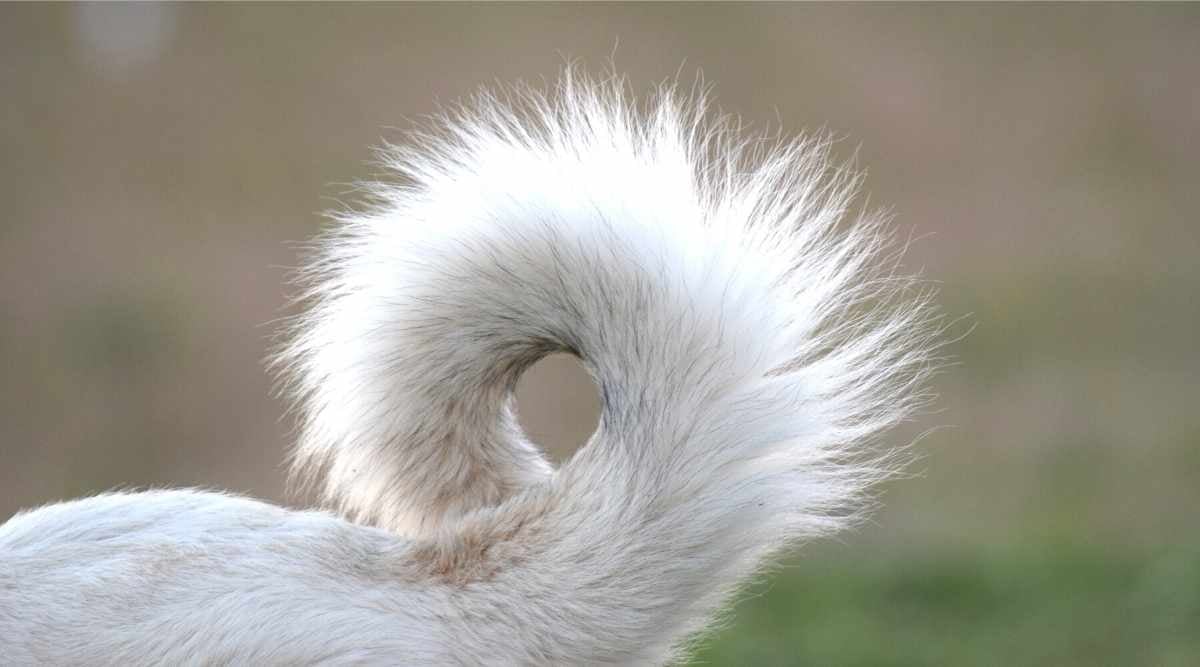Chihuahua Lifespan: How Long Do Chihuahuas Live?
When you purchase through links on our site, we may earn a commission. Here’s how it works.
Bringing a new sweet Chihuahua puppy into your life is an amazing experience, and owners will want to learn everything they can before bringing that sweet new fur baby home. Of course, owners want this feeling to last forever. One huge question pup parents have: how long do Chihuahuas live?
Chihuahuas are one of the most popular breeds of all time for many reasons. These tiny pups are adorable and have huge personalities. They are described as tiny yet mighty and often want to be in charge. These perky pups are great for all types of families and first-time dog owners.
Anyone who ever has owned a tiny pup like this will hold them close in their hearts forever. Fortunately, the Chihuahua is one of the longer-lived breeds, but they do have some health concerns owners should know about. We get into the details about the Chihuahua lifespan and what owners need to know about keeping this breed around for as long as possible.
Table of Contents
Chihuahua Breed

Chihuahuas are well known for being the smallest dogs in the world. The Chi, as this breed is also called, is the very physical definition of small, weighing anywhere from 5 to 10 pounds. Some are much smaller. They are unbelievably cute. One of the smallest on record was an itsy-bitsy girl named Milly. Milly weighed just one pound.
The Chi is an unforgettable dog with a long history of living alongside humans. The breed is native to Mexico. They are believed to have descended from an ancient breed known as the Techichi, once raised by the Toltecs and traced back to the 9th century. When the Toltec way of life was taken over by the Aztecs, the dogs were bred to be smaller. They were thought to be lost forever when the Spanish overthrew and destroyed the Aztec civilization.
Then, in the 19th century, little canines resembling the Techichi were found in the Mexican state of Chihuahua. They were named after the area and rapidly became popular pets worldwide. They were made increasingly popular thanks to famous Spanish musician and band director Xavier Cugat, who raised the popularity of Latin music in the 1940s and 50s in the United States. He was known for performing with one of the little pups on one arm and his band conductor baton in the other.
Chihuahuas are everything one wants in a dog, wrapped up in one absolutely adorable, minuscule package. These pups are sweet, intelligent, independent, hilarious, and full of themselves. Because they are so small and cute, they are known for getting away with tons of mischievous behavior. Chihuahuas are incredibly affectionate but also demand to be the ones in charge. They do not care if they see another dog bigger than them, their human family members, or a complete stranger walking on the other side of the street. It must be known that they lead the pack.
Along with being incredibly affectionate, Chihuahuas make excellent guard dogs. They are incredibly protective and have no problem letting their opinions be known. Be sure that your Chihuahua will alert you to anyone approaching your door or even other family members they feel are encroaching upon their space. They are very energetic and love to play. The Chi makes a wonderful family pet because they get along with both people and other animals and do not need a ton of space to get enough exercise. They have an independent streak, but proper training and socialization will do just fine in any situation.
Chihuahuas are not called toy dogs for nothing. They quite literally look like toys. They will have either a deer-shaped or apple-shaped head and very large, erect, pointy ears. The Chi have very inquisitive faces, partly due to their large expressive eyes. They proudly carry their tails behind them, often high in the air. The Chi can be either short or long-haired, and most will have soft glossy coats. Longer-haired Chihuahuas will have double coats, while shorter-haired varieties will have soft, downy hair. Though small, these little buddies need a lot of attention and care and become very attached to their people.
Chihuahuas and Chi mixes are popular as pets and in pop culture. They are often used in advertisements and movies, and many carry substantial social media followings. The Chi is popular as a purebred but is also found in many beloved mixes, including the Chihuahua Terrier mix, Husky Chi, Chihuahua Labrador mix, and more. When mixed with another yappy dog breed like the Jack Russell Terrier, one gets an incredible blend of highly energetic, yappy pooch.
How Long Do Chihuahuas Live?

Fortunately, Chihuahuas are a very long-lived breed. Chihuahua life expectancy, on average, is about 15 to 20 years. Having a 17- or 18-year-old Chihuahua is very common, and with proper care, these tiny ties can live full, happy lives alongside their human family members for quite a long time. This is, in part, why they are a popular family pet.
As with many smaller breeds like the Yorkshire Terrier, Chihuahuas live longer than medium to large breeds. Keep in mind that this is just an estimation of the average expected lifespan. Your dog’s unique genetics, health, diet, and living situation will affect how long she will live. Not every Chihuahua will live as long as 15 or 20 years. This is a general guideline.
Health Factors That Impact Chihuahua Lifespan
Just like humans, there are a few different things, both environmental and genetic, that will impact how long a Chihuahua will live. Owners must familiarize themselves with any kind of genetic condition a breed may be prone to and learn about the specific care, and exercise needs a breed has. Not all dogs or breeds will have the same expected lifespan. There are some things regarding general canine health and care that owners need to know, as well as specific breed-related concerns.
When well taken care of, most Chihuahuas are very healthy. However, they are prone to some health conditions and diseases. Some of these are related genetically, and others are problems many smaller dogs face.
Heart Disease
Unfortunately, the leading cause of death in Chihuahuas is heart failure, especially for those in their older years. At least 75% of Chihuahua heart disease is related to valve deterioration. These are often indicated when a vet picks up a heart murmur during an examination. Pay special attention when a heart murmur is present in an older pup that was not there before. This is one of the key indicators that there may be an issue with their heart. Though it can be expensive if a heart valve issue is diagnosed early, your pet stands a much better chance of effective treatment and recovery.
The two main cardiac conditions that affect the breed are patent ductus arteriosus (PDA) and mitral valve disease. If these conditions are not treated, they can lead to cardiac failure. This is one of the many reasons to keep up with your Chihuahua’s routine medical care. These regular checkups will help veterinarians notice any symptoms or signs of heart disease early on. If possible, it is essential to diagnose and start treatment for many of these conditions before they become life-threatening problems.
Dental Disease
Toy breeds like the Chihuahua are also prone to dental disease. It is estimated that about 80% of canines, regardless of breed, will show signs of dental disease without proper dental care. In some cases, Chihuahua’s baby teeth will not fall out, impacting the growth of their adult teeth and causing severe overcrowding. This can make cleaning their teeth quite hard. Periodontal disease can occur after dental plaque has built up for many years around the teeth and gums. As these diseases advance, they will make eating difficult, cause your pup pain, and can significantly impact how long they will live. It is essential to pay attention to your Chihuahua’s dental health and do cleaning as often as possible.
Daily dental cleaning is best. However, if that is not possible, at least try to do it once or twice a week. All dental disease gets worse over time. Symptoms can be reduced with proper attention and dental care. Additionally, many Chihuahua owners choose to feed their fur babies soft food diets because of their size. Kibble is very important in helping to keep their teeth clean as it works to scrape tartar and plaque off. Make sure to regularly provide your Chihuahua size-appropriate kibble as part of the quest to keep their oral health in top shape.
Obesity
Because Chihuahuas are so petite, their weight is a significant factor in their overall health as well as their expected lifespan. Overweight and obese Chis are susceptible to serious health issues that can take years off their lives. These include conditions like cardiovascular disease and diabetes. Conversely, Chihuahuas who do not weigh enough can also be at risk for serious health issues, including weakened and immature immune systems, malnutrition, and more.
It is easy to think that a Chihuahua that is a little chunky is adorable, and sometimes owners may not take this seriously. However, because they are so small, even half a pound of extra weight poses a significant risk. Obesity can lead to an increased risk of heart disease, the development of diabetes, as well as additional pressure put on their joints and skeletal systems. This can cause the development of arthritis far earlier than normal. Overweight Chis often suffer from spinal issues or back conditions due to the extra weight, including slipped discs, torn ligaments, and broken bones. Obesity can also lead to the development of hypertension, which is high blood pressure. This causes excess strain on their bodies, increasing the chance of disease and conditions like organ failure.
Because this breed is already at such a high risk of heart disease, keeping them at a healthy weight is crucial. Any increase in weight means they are at a higher risk of developing severe heart disease. Because of this, it is crucial that Chi owners and those who own Chi mixed breeds ensure their fur babies are getting the highest quality possible nutrition. Even though they may be cute when they ask for a bite, it is important to lay off the treats and human snacks with this breed.
Infections
Chihuahuas tend to be susceptible to parasites as well as viral and bacterial infections. These include ear infections and common infections that affect all breeds, including distemper, rabies, and parvo. It is vital to keep your eye out and avoid your pup drinking from any puddles or standing water. Because they are so close to the ground, they often get into strange things, which can include different types of parasites and bugs, including heartworms, roundworms, hookworms, and more. Additionally, a Chi bitten by a disease-bearing mosquito may get very sick. Infections themselves are not necessarily life-threatening but will take a significant toll on your dog’s overall health.
Vaccinations
Canines are required to undergo immunizations and vaccinations throughout their lifetime. These vaccinations are necessary whether they are indoor or outdoor dogs or exposed to many environmental factors. These vaccines are incredibly important, as they protect your pup from diseases that have the potential to end their life. For this reason, it is essential to listen to your veterinarian and stay on top of all vaccinations. Your veterinarian will work out a schedule specific to your pet’s age, weight, breed, and health needs. Keep in mind that vaccinations need to be updated periodically throughout adult lives. While we often focus more on these vaccinations when they are puppies, they are equally important for aging dogs.
Spay & Neuter
Getting your Chihuahua spayed or neutered is one of the essential factors in their overall health and life expectancy. Especially for females, this process reduces the risk of certain types of diseases like cancers that this breed is prone to. Additionally, it reduces the chance of them becoming pregnant, which can be very taxing on their tiny bodies. Spaying a female pup before she enters her first heat will help prevent illnesses later in life. Specifically, females often develop a pyometra, an infection in the uterus that can sometimes get into their bloodstream and potentially be fatal. They also have an increased risk of developing tumors and other issues. Unneutered males can be prone to prostate infections as well as tumors and cancer in their testicles.
Eye Conditions
The Chi is a well-known breed for developing and being prone to different eye conditions and diseases. Some of these may be only slightly bothersome, while others can be severe. For example, this breed is often affected by glaucoma, which is quite painful and will lead to blindness if not treated properly. Unfortunately, owners often do not notice symptoms until this disease is quite severe. Most veterinarians will screen for this at your pet’s regular health checkup, another reason that it is essential to participate in preventative care. Along with glaucoma, Chihuahuas are prone to cataracts, and progressive retinal atrophy, both of which can lead to blindness if not treated.
Hemophilia
Chihuahuas are highly susceptible to developing a bleeding condition called hemophilia. This is the most common genetic bleeding disorder in canines. The gene is usually carried by females, while males will show signs and symptoms. In smaller breeds like Chihuahuas, it may be harder to pick up on signs and symptoms of their illness. There is no known reason why this breed develops hemophilia. The condition results from a spontaneous mutation that affects many generations of offspring.
Hypoglycemia
Hypoglycemia, which is a condition that occurs when a canine’s blood sugar falls dangerously low, can be prevalent among small breeds. If this condition is not treated, it can be fatal if blood sugar drops below appropriate levels. Their bodies use glucose to provide energy. When they do not have enough, their cells cannot function properly, which will cause a range of symptoms. This can include a lack of appetite, weakness, seizures, vomiting, and a lack of coordination. This condition will require immediate care from an emergency vet. If this condition is not treated or continues to be severe throughout their life, it can even cause neurological damage. Dogs can recover from hypoglycemia, but it may be very taxing and can impact their overall health and life longevity.
Many other medical conditions can affect this breed throughout their lifetime. These include osteoarthritis, urinary tract issues, kidney function problems, kidney stones, tracheal collapse, knee issues including patellar luxation, arthritis, long-term pain, hair loss, and hydrocephalus. While not all these issues will be life-threatening, they impact a dog’s overall health and immune system. How healthy a dog is and the level of medical care they receive throughout their life is a significant factor in how healthy they are and how long they will live. Getting pet insurance for your pup before they are ill can help offset some medical costs and, depending on the plan, may help with both routine and emergency care.
Other Factors That Impact Chihuahua Lifespan

Other influences like nutrition, genetics, and care will significantly affect a dog’s overall health and lifespan.
Nutrition
Nutrition is critical to a dog’s overall health and dramatically affects the expected lifespan. Overweight pups are more likely to develop serious diseases, are at increased risk for heart attack and heart disease, are more likely to develop diabetes, and have a more challenging time carrying their body weight. Sadly, overweight dogs have a higher chance of dying at a young age. Maintaining a healthy weight and having a healthy, well-balanced diet are significant ways owners can increase their dog’s chance of living longer.
Owners need to remember that our pets age much quicker than we do. A general equation is that one year of human life equals anywhere between 5 to 7 for dogs. Because of this, their bodies will go through the normal aging processes quicker than we do. What a canine eats and how much they eat do impact overall health and expected lifespan. Some studies have been done in this area. Research has shown that owners controlling portion size and nutritional content increase a dog’s lifespan.
Stick to brands that use real meat ingredients and list them as the first ones. Avoid fillers, unknown animal by-products, and foods high in fillers and additives. For small breeds like the Chihuahua, it is best to stick to a small breed formula. Some companies will offer breed-specific nutritional plans. You can speak with your veterinarian about ensuring your pup gets a diet best for their age and size. Puppies, adults, and senior animals all have distinct nutritional needs, so make sure that you look for those age-appropriate recipes.
All dogs will do better with foods made from high-quality, well-sourced ingredients. Owners can look to the American Association of feed control officials for guidelines on what should be included in pet foods. All commercial foods should consist of whole, natural meats and proteins. The meat will provide components like amino acids, fats, vitamins, oils, and minerals, along with the protein essential to a dog’s health. Their diet should also include healthy carbohydrates, Omega fatty acids, fruits and vegetables, elements like glucosamine, and essential amino acids. Also, look for foods that use natural preservatives instead of artificial ones.
Genetics
Genetics is something that always plays a role in how healthy any canine is and how long they will live. For Chihuahuas, this is also the case. It has been shown that purebred dogs have a shorter life expectancy than those who are of mixed genetics. Smaller breeds like the Chihuahua also have a longer expected lifespan than bigger breeds like the Labrador or Great Dane. So, the size and inherited health conditions will play a role in how long a dog lives. Dogs from higher-quality breeders will likely have been put through genetic testing to rule out any major health issues or red flags. Owners can ask to look at some previous puppies and inquire about how long they lived to get more information.
Care & Lifestyle
The other major factor affecting how long a dog will live include their care and lifestyle. Dogs who live active lifestyles come and get plenty of exercise time, high-quality nutrition, and regular medical care will live longer. This is true regardless of breed because these pups stand a higher chance of having a long-term or life-threatening condition identified and treated early. Routine veterinary care is critical, as is a dog feeling safe and comfortable in their home. Dogs who suffer from conditions like anxiety or stress may see an impact on their overall health. Dogs who are overweight, do not get enough exercise or are being fed the wrong food may develop a higher risk for serious health conditions like obesity, heart disease, and arthritis.
Providing a healthy lifestyle for our pets is just part of a dog owner’s duty. It will affect their quality of life, health, and how long they live. Many humans are very concerned about living a healthy lifestyle, and we need to extend this same consideration to our dogs. Always provide your dog with the best possible food and care possible. As canines age, they will start to show some of the same aging symptoms as adult humans. They may experience weight gain, a decrease in activity, changes in their skin and fur, arthritis, stomach issues, urinary issues, dementia, loss of hearing, loss of vision, and more.
Owners must ensure they tend to their dog’s specific needs throughout every age and stage of their life. There is no one-size-fits-all option here, every dog is different, and owners must ensure they do everything they can to keep them healthy, no matter what phase of life a dog is in. Keep in mind that older canine health can deteriorate very rapidly, so it is vital that owners keep up with routine veterinary care, as well as pay extra special attention to the kind of food their dogs get. Avoid human snacks, especially those tasty treats like bacon that aren’t healthy for anyone.
How to Help Your Chihuahua Live A Long Life

Owners often want to know what they can do to increase their dog’s lifespan and longevity. There are many ways owners can help keep their Chihuahua healthy and increase their chances of a long lifespan. These include:
- Always provide a high-quality, well-balanced diet. Avoid human treats and table scraps, as these are often high in fats and salt and contain toxic ingredients for canines.
- Control the amount and how often your dog eats.
- Ensure that your dog gets a proper amount of exercise every day. Know your dog’s limits and ensure they get the right amount. Too little can lead to obesity and other issues, and too much can overexert them, increasing the risk of weakness, overheating dehydration, and heart issues.
- Keep up with dental care. Daily cleaning is best. Seek assistance from your veterinarian or groomer if you have trouble.
- Keep up with regular veterinary visits and preventative care. Follow all instructions from your veterinarian on any kinds of medications, supplements, or special diets your veterinarian recommends.
- Keep your Chi warm. These pups get cold easily. Meaning they are a good breed for sweaters and need to be kept warm. Sweaters are not just for chilly days for this kiddo.
- Stay current on all immunizations and vaccinations throughout your dog’s life. It is also important to stay up to date with heartworm, flea, and tick prevention.
- Pay attention to signs and symptoms that indicate your pup may not feel well, is ill, or has an unexplained medical issue.
- Make sure to provide your pup with plenty of mental and physical stimulation. Bored dogs can get depressed or suffer from separation anxiety. Make sure they always have a good selection of entertainment and toys. Engage in regular one-on-one play sessions with them.
- Spay and neuter your pup at the appropriate age. Speak with your veterinarian about when it is best to do this.
- Do not expose your dog to any kinds of harmful environmental factors such as secondhand cigarette smoke. Keep all items like human medication, alcohol, marijuana, human candy, coffee, and other potentially dangerous items out of reach.
- Chihuahuas are petite and easily get crushed or stepped on. Because of this, they always need close supervision, especially in crowded places. Always keep your dog on a leash or fully supervised when outside. Dogs often get injured or hurt when left outside alone, which is an easily preventable situation.
- Make sure to properly train and socialize your dog with both people and animals. Dogs who are unsure of how to behave around new pets, other dogs, or strangers may end up getting into a fight or other awkward situations. Dogs who are not socialized can develop different issues, including fear, anxiety, and even digestive and skin concerns.
Always pay attention to your pet, and remember that animals communicate with us through their behavior. Pay close attention to unusual behavior, signs, or symptoms your pup is giving you that they are in distress, ill, or need more attention. Calling your veterinarian for advice is always acceptable, and it is much better to err on the side of caution than to assume everything is alright.
Frequently Asked Questions
How old was the oldest ever Chihuahua?
This is a question that has a complicated answer. Many Chihuahua owners have claimed their dog lived well over 20 years but have yet to be able to prove that. Other dogs, like TobyKeith, a 21-year-old pup from Florida, held titles as the world’s oldest living dog. Of course, these titles can change quickly. Another Chi named Megabyte was said to have lived just under 21 years, though there is no official record. Many other owners worldwide have claimed to have Chi’s that reach 22 or 23.
What is the most common fatal medical concern for Chihuahuas?
Heart disease is the number one cause of death for this breed. Owners must take steps when their pup is young to keep them healthy and prevent heart disease. Pay attention to heart murmurs that develop later in life.
Why is dental care important for my Chi’s lifespan?
Dental care is important for many reasons. It is one of the most prevalent diseases among dogs and cats. It is also one of the most overlooked areas of care. Chihuahuas are already prone to oral disease and deterioration. Proper dental care can add years to their lives. Owners must train their Chihuahuas young to tolerate dental cleanings.
Additionally, regular cleanings under anesthesia from the veterinarian can benefit their oral health. Oral disease, when left untreated, can become very severe and have a more significant impact on your dog’s overall health. Neglected dental disease can be related to other conditions, including kidney disease, liver disease, heart failure, lung issues, and even heart attacks. Proper dental care can improve your dog’s overall health and demeanor. Pay very close attention to this issue for Chihuahuas.
Final Thoughts
Chihuahuas are amazing animals who make wonderful canine companions. They can be with us through many years and pivotal moments of our lives. The Chihuahua has a long lifespan, between 15 and 20 years. It is essential that owners take every step possible to keep their dogs healthy and lower their risk of diseases. These dogs are prone to some medical conditions like heart disease, so nutrition and exercise are critical. The breed is also prone to injury and other size-related medical issues as a very small breed. Throughout your Chihuahua’s life, it is very important to keep up with regular medical care and preventative treatment. With proper care, regular exercise, healthy nutrition, and plenty of love, these tiny little tykes will be a huge presence in your life for many years to come.



